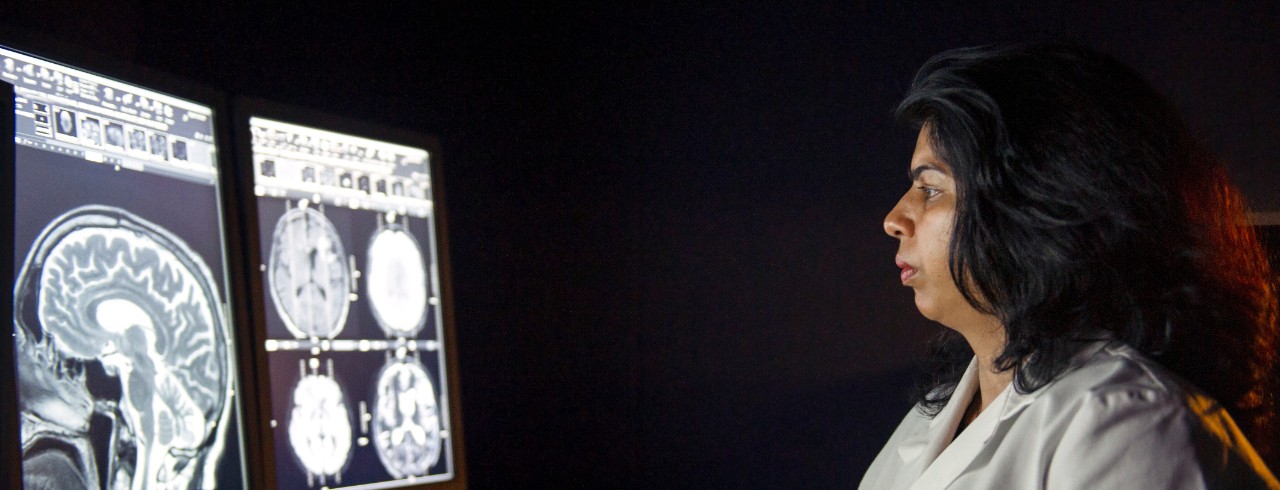
Neurology Today: How and where artificial intelligence works for stroke detection
Nearly every industry is wrestling with how artificial intelligence (AI) will affect its future, and the area of stroke imaging and care is no exception.
Achala Vagal, MD, vice chair of research and professor of radiology in UC’s College of Medicine and a UC Health neuroradiologist, was one of several experts who discussed this topic with Neurology Today.
“As powerful as AI is, I don't think it can ever replace the human expert,” Vagal said. “We cannot take AI as gospel. I call it augmented intelligence: it's one more tool to help us help our patients.
“For me, the paradigm shift is that we have our desktop PACS workstations for viewing images, but the decision-making and communication about triaging the patient is happening on a different platform, on the phone,” Vagal continued. “We radiologists need to stay actively involved with the rest of the stroke team in interpreting and confirming what the AI is saying.”
Read the Neurology Today article.
Featured photo at top of Achala Vagal looking at brain scans. Photo/Colleen Kelley/UC Marketing + Brand.
Related Stories
Neurology Today: How and where artificial intelligence works for stroke detection
May 18, 2023
The University of Cincinnati's Achala Vagal, MD, was featured in a Neurology Today article discussing the present and future of artificial intelligence in detecting strokes and predicting patient outcomes.
WVXU: COVID-19, lung and brain images and stroke risk
March 15, 2021
University of Cincinnati researchers say for the first time they have a visual correlation between the severity of COVID-19 in the lungs and the effect on patients' brains, WVXU-FM reports.
Enquirer: Experts discuss reasons for drop in overdose deaths
April 12, 2023
The University of Cincinnati's Christine Wilder, MD, spoke with the Cincinnati Enquirer about Hamilton County data that overdose deaths in 2022 dropped for the first time in six years.
